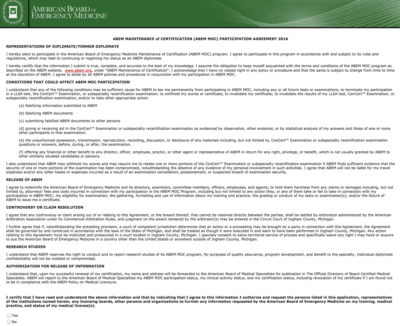Read and weep. My comments in [brackets]:
…[interviews with medical insurance policy-type reps in Washington]
One key worry is based on the fact that what they’re facing is not a situation where it is impossible to buy coverage but one where it is possible but very difficult to buy coverage. That’s much worse from their point of view, because it means that only highly motivated consumers are getting coverage. People who are highly motivated to get coverage in a community-rated insurance system are very likely to be in bad health. The healthy young man who sees an ad for his state exchange during a baseball game and loads up the site to get coverage—the dream consumer so essential to the design of the exchange system—will not keep trying 25 times over a week if the site is not working [1]. The person with high health costs and no insurance will [2]. The exchange system is designed to enable that sick person to get coverage, of course, but it can only do that if the healthy person does too [3]. The insurers don’t yet have a clear overall sense of the risk profile of the people who are signing up, but the circumstantial evidence they have is very distressing to them [4]. The danger of a rapid adverse selection spiral is much more serious than they believed possible this summer [5]. They would love it if the administration could shut down the exchange system, at least the federal one, until the interface problems can be addressed. But they know this is impossible [6].
A terrifically scary article (read it all ™), but this paragraph has so much implied information in it it jumped out as needing some amplification.
1: Why would he? He’s actuarially bulletproof, and has as much need of medical insurance as he does a 401k (unemployment joke), but seriously: this youngster is the basis for paying the ACA bills. If the young and healthy and unlikely to need medical insurance don’t sign up the ACA insurance house of cards collapses (see next):
2: Why wouldn’t they? This is the group the ACA is aimed at, those who can’t get insurance at all, or who have it (Cobra, etc), but for this group insurance is prohibitively expensive. Were I in their shoes I’d be hitting this site 18 hours a day and not quitting until I got insurance and a subsidy. Hint, this group is very to horrifically expensive, and require their costs to be spread far and wide for insurance to work.
3: To belabor the point, insurance companies don’t print money to pay bills, they transfer money from the payments of those paying for insurance who don’t wind up using it to the bills of those who do. Therefore not enough insured paying (but not using) the insurance company runs out of money, then the insured aren’t insured when the company goes broke. That’s ungood.
4: Insurance companies understand medical cost risk like no other group, and were this good news for them (non-distressing news) they’d be singing this to the heavens/news, as a way to sign up the [1] group. Then it’d be ‘cool!’, which would cascade into more young/well signups.
5: This is inexplicable. Insurance companies abhor risk, this was a completely foreseeable risk in an unknown situation, unless there were some significant assurances from On High that Nothing Can Go Wrong. Which they would be dumb to just swallow whole. This part of the mechanism of bargaining still bugs me, as I don’t have an explanation for why an entire, smart and profitable industry would buy into a scheme that could destroy it quickly and painlessly. Remember this, they walked into the ACA eyes wide open.
6. It’s hard to stop a process bought into under a combination of duress and greed, either objection draws credibility into question.
No secret, I’m totally against (and aghast at) the ACA. That said, it’s more than curious a nation that put men on the moon with slide rules cannot make an insurance marketplace with roughly a half a billion dollars and a three year head start.
Interesting times.




As a paramedic, the implications of prehospital care and transport and the ACA which, I believe, restricts hospital visits for recurring complaints within a six month period (as I understand it, but , hey, I haven’t read all 1023 pages yet), is not clear. If we have a 911 call to a ‘frequent flier’, we are obligated to respond, treat, and transport. EMTALA requires the ER to do the same. ACA restricts, or prohibits, payment…
So EMS is not paid and the hospital is not paid, right? Now THATS affordable healthcare! For a while, anyway…
Step back from the details and contemplate the intent. ACA was specifically designed to fail, producing a quagmire so colossal that only replacing it by a single payer system could possibly provide any hope of creating a workable system.
ACA is absolutely enormous. Regardless of the subject, good policy never comes from a phone book sized bill.
ACA is typical of so many ideas and plans put together by a committee. Looks good on paper – totally unworkable in application. Been there, done that many times in my working career.
The plans put together by the boss’s daughter and cohorts were always put in place. That company is no longer with us.
Sad but true.
What I have found more than a little troubling is the statements by some in the medical community that the failure of the ACA is due to racist bigots. Some medical groups have allowed this type of comment against undefined groups and states be published all under the guise of freedom of speech.
I know of no person that does not want to provide medical care for those in need.
We have allowed certain groups in this country too believe that they cannot be wrong and that if you disagree there is some personality flaw in you that does not recognize their superior intellect.
The ACA is failing due to human behavior, The Tragedy of the Commons, and simple economics, not because any one group wants to deliberately harm a person.
Steve Lucas